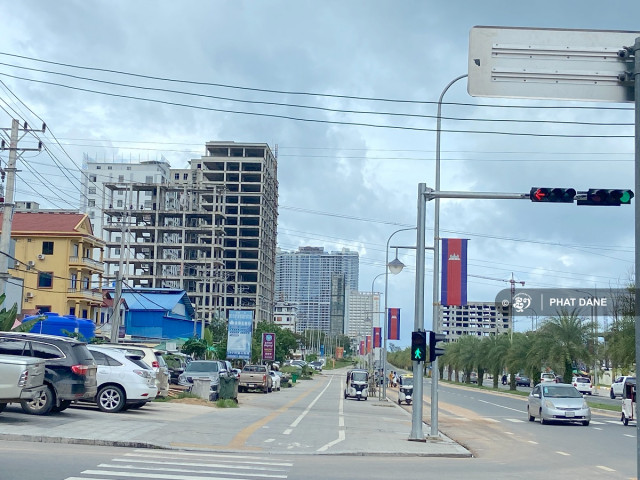Chinese Investors Returning: Cambodia Should Learn the Lesson of Money Laundering Risks

- By Manghout Ki
- March 19, 2023 9:21 AM
Money laundering is the process of passing off as legitimate the proceeds of criminal activity. This typically involves a series of financial transactions and manoeuvres designed to conceal the origin, ownership, or destination of funds.
The ultimate objective of money laundering is to make illegal proceeds appear to come from legal sources and to integrate them into the legitimate economy so that they can be used undetected for purposes such as financing further criminal activity or supporting a lavish lifestyle. Money laundering can involve various unlawful activities, including drug trafficking, human trafficking, corruption, fraud, and terrorism. It is considered a serious crime and is prosecuted in many jurisdictions around the world.
Money laundering is a serious offence that can have negative effects on the economy and security of a nation. For instance, countries that do not comply with international anti-money laundering standards may be subject to financial sanctions, such as restrictions on access to global financial markets, which can have a devastating effect on the economy of the country. Cambodia, like every other nation, should therefore combat money laundering and learn from past incidents to prevent future occurrences.
Cambodia has a long history of money laundering problems. The Financial Action Task Force (FATF) placed the country on its "grey list" in 2019 for failing to comply with international anti-money laundering and counter-terrorism financing standards. This affected the country's economy and reputation negatively.
The real estate industry in Cambodia has been identified as a high-risk sector for money laundering due to a number of factors. In recent years, the industry has experienced substantial growth, which has attracted foreign investors, particularly from China. This has led to a substantial influx of funds into the sector, creating opportunities for money laundering. According to the Council for the Development of Cambodia, the sector attracted an estimated $2.32 billion in 2020, representing a 67 percent increase compared to $1.39 billion in 2019.
The lack of transparency in property transactions is another reason why the Cambodian real estate market is considered a high-risk area for money laundering. Because the industry is largely unregulated, it is simple for individuals and businesses to engage in suspicious transactions without proper oversight. In addition, Cambodia's anti-money laundering laws and enforcement mechanisms are inadequate, making it difficult to detect and prosecute money laundering cases in the sector.
There has been a number of suspicious transactions involving large sums of money in the Cambodian real estate industry. In 2019, the U.S. Treasury Department sanctioned a Cambodian general and his family for allegedly engaging in money laundering and corruption in relation to the sale of land in Phnom Penh to Chinese investors.
Cambodia must strengthen its legal and regulatory framework and increase the transparency of property transactions to combat money laundering in the real estate industry. This may involve implementing due diligence requirements for real estate purchases and enhancing the capacity of law enforcement agencies to investigate and prosecute cases of money laundering in the sector. In addition, the government can collaborate with international organisations such as the FATF to enhance its compliance with international anti-money laundering standards.
In addition, Chinese casinos have been identified as significant money laundering hubs in Cambodia. Typically owned or operated by Chinese nationals, these casinos primarily serve Chinese customers. According to a report by the Global Initiative Against Transnational Organized Crime, 88 of Cambodia's 150 casinos were owned by Chinese citizens in 2022. They are in the coastal province of Sihanoukville and have ties to a variety of illegal activities, including money laundering, drug trafficking, and human trafficking.
The large amounts of cash that flow through Chinese casinos is one reason why they are a hotspot for money laundering in Cambodia. The high volume of cash transactions in casinos makes it difficult to trace the origin and destination of the funds, as they are frequently used to purchase chips and gamble.
The lack of effective regulation and oversight also contributes to the high risk of money laundering in Chinese casinos in Cambodia. The country's framework for regulating casinos is inadequate, and the enforcement of existing laws is frequently insufficient. This makes it simpler for individuals and criminal organisations to use these establishments for illegal purposes without fear of detection or prosecution.
To combat money laundering in Chinese casinos in Cambodia, the government must strengthen its regulatory framework and increase the enforcement of anti-money laundering laws. This may involve implementing more stringent due diligence requirements for casino operators, increasing the transparency of transactions, and enhancing the regulatory authorities' capacity to investigate and prosecute money laundering cases. In addition, the government can collaborate with international organisations like the FATF to enhance its compliance with international anti-money laundering standards.
The banking sector of Cambodia has also been identified as a high-risk area for money laundering. In some instances, banks are still not required to conduct adequate due diligence and report suspicious transactions to the authorities, allowing money laundering activities to go undetected. According to a report published by the Asia Pacific Group on Money Laundering (APG) in 2020, money laundering and terrorist financing continue to pose a significant threat to Cambodia's banking sector. While the country has made some progress in improving its anti-money laundering and combatting the financing of terrorism (AML/CFT) measures, the report notes that there are still significant gaps to be filled.
Insufficient supervision and regulations are one of the primary reasons why the banking sector in Cambodia is considered a high-risk area for money laundering. Regrettably, Cambodia's anti-money-laundering laws and regulations are inadequate, and their enforcement frequently requires improvement. Consequently, some banks may necessitate additional systems and controls to prevent money laundering.
The prevalence of cash-based transactions also contributes to the high risk of money laundering in the banking sector of Cambodia. It is challenging to trace cash transactions, making it easier for individuals to engage in illegal activities without being detected.
To address the problem of money laundering in the banking sector, Cambodia must strengthen its anti-money laundering laws and regulations and improve their supervision and enforcement. This may involve implementing more stringent due diligence requirements for banks and enhancing regulatory authorities' capacity to investigate and prosecute cases of money laundering in the sector. Additionally, banks should be encouraged to adopt more effective money-laundering prevention and detection systems and controls. This may involve investing in technology and training staff to enhance their ability to recognise and report suspicious transactions.
To address this issue, Cambodia has strengthened its anti-money laundering and counter-terrorist financing framework. A law was passed in 2019 to establish a Financial Intelligence Unit to combat money laundering and terrorist financing. In addition, the country has cooperated with the FATF to enhance its compliance with international standards. The Paris-based Financial Action Task Force (FATF) officially removed Cambodia from its grey list of high-risk countries for money laundering on February 24, 2023—the country had been on the list since 2019.
Nonetheless, there remains work to be done. Cambodia must continue to strengthen its legal and regulatory framework to prevent and combat money laundering. This can include increasing the transparency of financial transactions, strengthening due diligence requirements, and ensuring that those who engage in money laundering face the appropriate penalties. Cambodia should be especially wary of the impending influx of Chinese investors.
Manghout Ki is a graduate student in International Relations at Griffith University in Australia.















